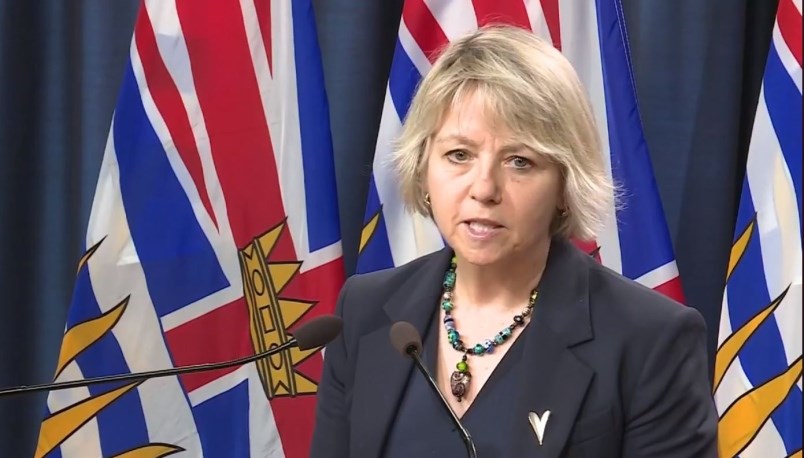By Dirk Meissner
VICTORIA — British Columbia has cleared hospital space for almost 4,000 possible COVID-19 patients, but potential shortages of personal protective equipment for health workers has become "our wicked problem," provincial health officer Dr. Bonnie Henry said Wednesday.
The supply of masks, gloves and medical gowns doctors, nurses and other health workers use to protect themselves while treating patients is running low, she said at a news conference.
"The burn rate is much more than we expected," said Henry. "That's our wicked problem. We are on a tenuous level now, but we have a plan for that. There are things we will be doing over the next coming days."
She said health officials are considering stockpiling, reusing and searching globally for more protective equipment.
"We are actively looking at getting as much as we can," said Henry, who also mentioned using alternate supplies, but did not elaborate.
Health Minister Adrian Dix has previously said B.C. has adequate supplies of protective equipment, including respirators and ventilators for patients. He also said more supplies have been ordered and were expected to arrive shortly.
Henry reported 42 new B.C. cases of COVID-19 Wednesday and one death, raising the province's total to 14 deaths. B.C. now has 659 COVID-19 cases, she said.
Most of the cases, 547 people, are those who live in the Lower Mainland, Henry said. There are now 47 cases on Â鶹´«Ã½Ó³»Island, 46 in the Interior and nine COVID-19 cases in B.C.'s north, she said.
Henry said 64 people are in hospital, of which 26 people are in intensive care. But she said 183 people have recovered from novel coronavirus.
She also said she is keenly awaiting patient data over the next week or 10 days to determine if the province's physical distancing and self-isolation efforts are working.
"What we are seeing today is people who test positive are people who have been exposed to the virus 10 days to 14 days ago," she said. "I do want to see that dramatically decreasing."
Her orders for people to physically distance themselves, self-isolate and wash their hands frequently are aimed at keeping the virus from spreading, she said, adding next week's patient numbers could start showing success.
"It's a bit of a dance right now," Henry said. "What I want to see is these numbers starting to come down over the next coming days."
She said she has concerns about a possible spread of COVID-19 in Vancouver's Downtown Eastside.
Many of the residents of the community have underlying health conditions and may be more vulnerable to having severe illness from the virus, Henry said.
This report by The Canadian Press was first published March 25, 2020.



